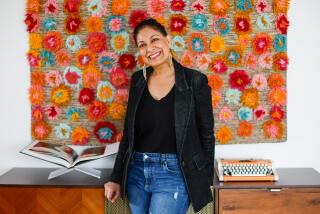‘The Last Brother’ by Appanah
This deeply affecting work, first published in French in 2007, is the fourth novel by Nathacha Appanah, a journalist who grew up in Mauritius. All of her novels deal with injustice — the injustice of poverty, class, indentured Indian workers in Mauritius and, in “The Last Brother,” the terrible suffering of two young boys.
“The Last Brother” is a story wrapped within a story. It begins with the narrator, Raj, 70 in 2005, remembering the years when he was 8, 9 and 10, growing up in Mauritius. He had two brothers, one older, one younger, and he loved them very much. His father was a violent, drunken man who frequently came home and beat his wife and children. One day, playing by the river, Raj’s two brothers were swept in and drowned. The family moved to Beau Bissau, where Raj’s father took a job as a guard in a prison that held 1,500 Jews, detained on their way to Palestine.
Bereft after the loss of his brothers, Raj spends his days peering through a fence into the prison yard. In this way, he meets David, a boy roughly his age. After a brutal beating from his father, Raj is put in the prison hospital and the two boys solidify their friendship. They do not speak the same language, but they make each other laugh, and David becomes a repository for all of Raj’s frayed emotions: “if for no good reason God took away those whom one loves, He would offer something else in compensation. And this something else, evidently, was David.”
Raj knows nothing about World War II. He cannot make sense of his father’s violence or of the deaths of his brothers.. The only tenderness, the only solace in his life comes from his mother, who endures her husband’s physical abuse, takes care of the house and gathers healing herbs from the forest. “My mother was the tender side of our life of poverty, sadness, and beatings with a bamboo cane. She loved me, she protected me, she healed me, she spoke softly to me.”
After a cyclone demolishes much of the island, Raj tries to escape with David, to take him somewhere safe from the prison guards who are searching for him. But David has malaria; he dies on their second night in the forest, and his memory becomes the spine of Raj’s long and, thankfully, happy life.
Whose story is this? Surely David’s and Raj’s, two little kings trapped in the world of menace. But when an author wraps a storyin a character’s memory like this, you might expect the details of that story to wobble like a mirage. They don’t. The vividness of the rushing river that carried away Raj’s brothers, the crashing cyclone and the beatings does not seem to have dimmed. A reader will not forget the little clearing, the hut, the sound of Raj’s father coming home at night, the dread.
Raj spends a lifetime combing through his memories of David: How did those Jews come to be there, and was he, Raj, responsible for David’s death?
“The Last Brother” is a beautiful, frustrating book. You want revenge. You want the violence and cruelty to stop its viral march through generations. You taste the bitterness of poverty. But most of all, you mourn the loss of childhood.
More to Read
Sign up for our Book Club newsletter
Get the latest news, events and more from the Los Angeles Times Book Club, and help us get L.A. reading and talking.
You may occasionally receive promotional content from the Los Angeles Times.






